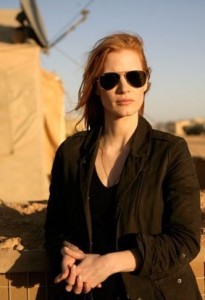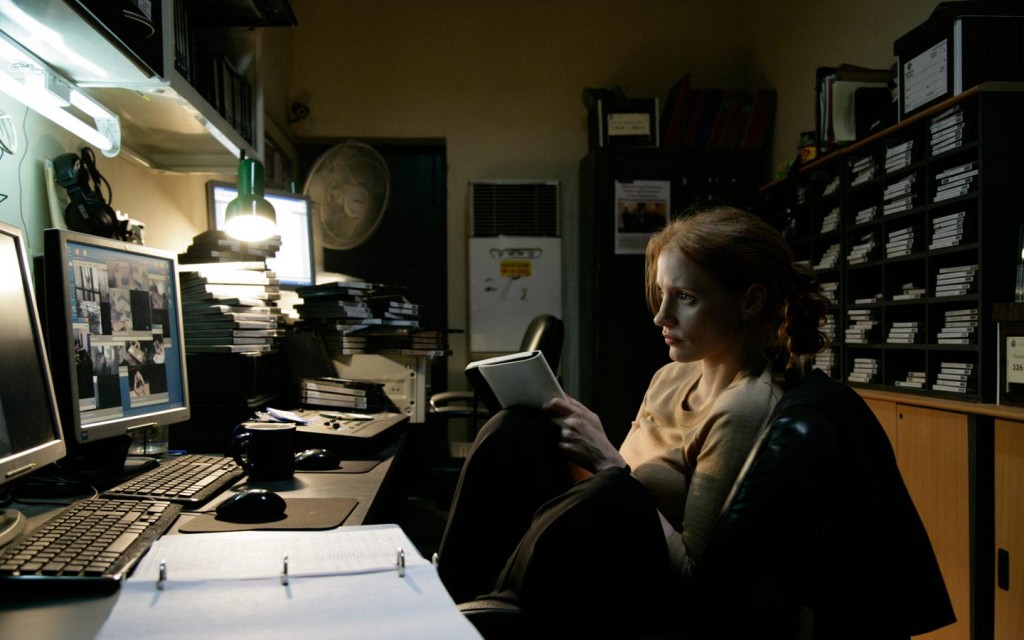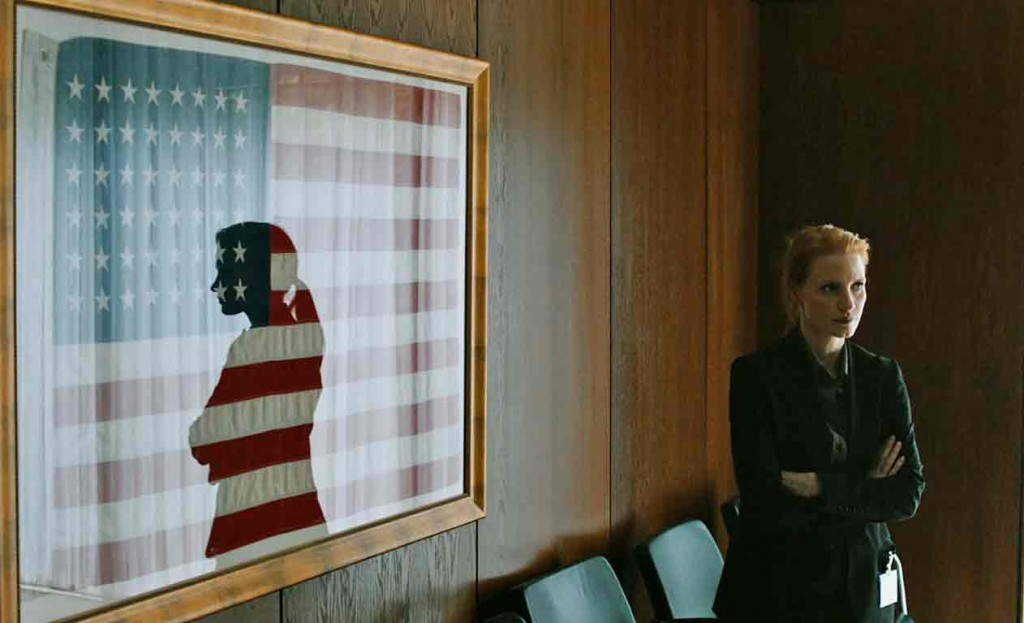I won’t mince words on this one: the media narrative and critical response built around Katheryn Bigelow’s Zero Dark Thirty has become all the way fucked up. While the film is not without its many intelligent defenders and is seemingly in the midst of great popular success, a baffling and idiotic Academy snub for Best Director is merely icing on a bitter cake baked out of misguided or outright irresponsible attacks on the character of the film and filmmakers.
Much of this debate went down when the film was still in limited release and thus out of reach of most viewers. It was a situation I found so frustrating that, with the pressure of a 2012 Best Of list also on my mind and armed with some free flights  at my disposal, I ultimately threw up my hands on the last day of 2012 and made a 1,500 mile, 12 hour day-trip to NY solely to see the film before immediately flying back to Atlanta. While I was able to catch Bigelow’s brilliant, stunning film a couple weeks earlier and place it rightfully at #2 on the aforementioned list, it also brought on the infuriating experience of seeing these raging takedowns of the film from pundits, politicians, critics, and even other filmmakers be suddenly illuminated as the incorrect, hysterical hit jobs most of them are. These pieces were and remain rampant with factual errors, misremembered details and outright false characterizations of scenes and plot turns in a film with a much more complex relationship with torture than has been painted.
at my disposal, I ultimately threw up my hands on the last day of 2012 and made a 1,500 mile, 12 hour day-trip to NY solely to see the film before immediately flying back to Atlanta. While I was able to catch Bigelow’s brilliant, stunning film a couple weeks earlier and place it rightfully at #2 on the aforementioned list, it also brought on the infuriating experience of seeing these raging takedowns of the film from pundits, politicians, critics, and even other filmmakers be suddenly illuminated as the incorrect, hysterical hit jobs most of them are. These pieces were and remain rampant with factual errors, misremembered details and outright false characterizations of scenes and plot turns in a film with a much more complex relationship with torture than has been painted.
Zero Dark Thirty makes a few things very clear: torture happened, a limited but notable pool of intelligence data was derived from prisoners who were either tortured, or coerced to speak with the threat of it, that a portion of the massive amount of information that ultimately led to Bin Laden’s whereabouts came from this data pool, and that the truly major and key components of the investigation were obtained by other means.
I could go on and on about the brilliant ways in which the film frames torture as an ugly, imprecise, and often fruitless tool, or how it integrates the moral toll such things takes on character, or weaves in the shifting politics of the situation throughout the story. I could also speak on the naive and dangerous attempt to repaint history as a narrative that fits your own political and moral feelings, righteous as they may be. Others have said it better though, and many of you still have to see the film for yourselves.
Even better? Kathryn Bigelow has decided to step up and speak for herself and the film more formally, via this eidtorial in the New York Times, in which she makes a few key points very plain.
“Those of us who work in the arts know that depiction is not endorsement. If it was, no artist would be able to paint inhumane practices, no author could write about them, and no filmmaker could delve into the thorny subjects of our time.
…
On a practical and political level, it does seem illogical to me to make a case against torture by ignoring or denying the role it played in U.S. counter-terrorism policy and practices.
Experts disagree sharply on the facts and particulars of the intelligence hunt, and doubtlessly that debate will continue. As for what I personally believe, which has been the subject of inquiries, accusations and speculation, I think Osama bin Laden was found due to ingenious detective work. Torture was, however, as we all know, employed in the early years of the hunt. That doesn’t mean it was the key to finding Bin Laden. It means it is a part of the story we couldn’t ignore. War, obviously, isn’t pretty, and we were not interested in portraying this military action as free of moral consequences.”
The entire piece is thoughtful and well articulated, and I encourage you to read it whether you’ve seen the film or not.
 Almost simultaneously though, comes a piece from THR noting that Lincoln will be enjoying its second episode of 60 Minutes devoted to aspects and personalities of its production, while a pitched episode concerning Zero Dark Thirty has been flatly denied.
Almost simultaneously though, comes a piece from THR noting that Lincoln will be enjoying its second episode of 60 Minutes devoted to aspects and personalities of its production, while a pitched episode concerning Zero Dark Thirty has been flatly denied.
One movie 60 Minutes will not be featuring is Zero Dark Thirty. The show was “pitched hard,” says executive editor Bill Owens, but the newsmagazine profiled director Kathryn Bigelow for The Hurt Locker in 2009, and the pic’s representatives were selling Zero Dark Thirty almost as a documentary, touting the filmmakers’ CIA access (which has led to a Senate investigation).
This is not to suggest that 60 Minutes is part of a grand conspiracy to tear down Bigelow’s film in favor of other, easier Hollywood favorites, but it’s another frustrating development nonetheless when Lincoln nabs two specials, and Les Misérables too is featured during voting season. Zero Dark Thirty deserves to be out front of the pack this awards season, getting in front of more eyeballs, and being rightly held up as a standard of brave, journalistic, and delicately artful filmmaking. It deserves to have the conversation around it more thoughtfully examined and contextualized, and the program would have been a great place for such a thing to happen. Oh well.
The one thing that will make sure the cheap shredding of its reputation and diminishing traction in the awards season more swallowable is continued success in theaters, and that at least appears to be on a good track. Here in Atlanta the film was selling out shows all weekend and even my Sunday night screening was packed wall to wall. Here’s hoping that remains the case across the country and people take it on themselves to see past all the bullshit and sit down for the most important movie of 2012 and, likely enough, one of the most important of the decade.

